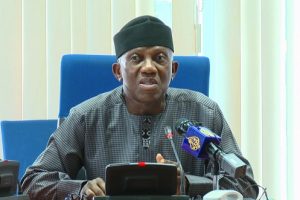BY MENGESHA AMARE
Ethiopia’s modern political life is persistently portrayed in crisis toppling regimes and threatening country’s survival as the past legacy had had unfit political repercussions.
For example, the politicization of Adwa and other historical events does have a number of impacts on current Ethiopian political undertakings and ideologies.
Besides, it seems customary these days in Ethiopia that Grand National events such as Adwa are repeatedly politicized for plainly unknown reasons. However, scholars do have their own points of view in this regard.
Having a short stay with The Ethiopian Herald scholars forwarded their view points.
Dr. Almaw Kiflie, Kotebe Metropolitan University Law and History instructor said responding to the question ‘Where does politicization of Adwa and other historical records come from?’ that whenever politicians lack acceptance, they usually use a fashion of defaming national beacons and reducing their recognition via exaggerating their gaps, if any.
This purely emanates from lack of acceptance and fear of leaving office, in the first place. For example, the TPLF-le system made Emperor Tewodsros’, Minilks, Haileselassie and other patriots born to various nations and nationalities lame and tried to inculcate its fictitious nationalism in the minds of citizens and to be cultivated well.
Second, as we have passed through criticizing politics, injured politics and hatred politic within an injected political scenario, leaders had tried to spoil history as if they are better than the then leaders under the guise of nurturing democracy. However, the reality on the ground didn’t reflect that fact.
The third one is the conspiracy orchestrated against the new generation; the generation has been made handicap not to know their country. Inking the good images in black and telling the posterity as they are working well, responsible, patriots and the sole respectable leaders, they had worked a lot to dismantle the country through blackmailing others’ good works.
They all the time pronounce that others are anti-peace elements, others don’t have national sentiment, others are not patriots. “It is only we who have national patriotism.” The other is poverty, when poverty exacerbates, the public doesn’t hear what he administrative officials say.
They tried to demolish the property of the nation, plundering the national asset and working on the contrary employing modern exploitation means. Misuse and abuse of wealth and history were used to escape from truth. When the public requests democracy, bread or job, leaders had made generation by filling with unnecessary narratives and belittling tactics to simply divert attention.
The Derge did it, and so did Hailesellasie. The officials of the incumbent are relatively good but, some tried on the contrary emanating from fear of public queries.
The long suffered Ethiopians have to look inward to devise systems and institutions that can potentially contribute to national integrity, people-to-people fraternity and to the effort geared towards fortifying unrestricted ties, said Dr, Almaw.
Associate Professor, Abebaw Ayalew, AAU on his part said Adwa has commemorated for a century plus. Whether this is marked, that couldn’t be celebrated has never risen so far, but began as of time of segregation introduced since 1991 system change. In that system, leaders had come up with two things.
The sentiment of politicizing Adwa and other national events emanated from ethnocentric sentiment. Yes, ethnic contradictions, whose explosive repercussions have marred the country’s political life ever since.
Every political, economic and social aspect was highly interlinked with ethnic affairs. The problem started there. They flourished followed by a scattered and isolated system which didn’t have any element of national unity. The tricky or nostalgia came.
Everyone was thinking as their own nation, clan and tribes were, have been, solely present, others were obscured as the government feared that unity can affect its existence and stay in power. Hence, their first clash was with history itself.
History is told, learnt formally and informally and stamped in the minds of the generation with a view to coming up with national unity, and guild.
Knowing that history reveals the reality, build unity and common understanding, and this in turn could be a serious threat for them, TPLF capitalized on reversing the fashion and widening disparity instead of consolidating harmony and inseparability.
Besides, masterminds of the regime came up with a tactic in which one nation suspects another tribe or clan, did a lot of conspiracy and wrong doings as much as they could to keep their status quo and prolong their term.
To mention but a few, first, they embarked on belittling, or devaluing the contribution of patriots and renowned personalities, degrading all leaders, martyrs, braves not to be seen outshined.
The second conspiracy, they made these beacons, emperors, patriots, braves vague or ambiguous to be comprehended. For instance, Belay Zeleke a great ransom, instead of magnifying his patriotic deed, they raised the issue of his tribal belonging Wollo or Gojam. He even didn’t remember his being that or this.
The other is creating fictitious narratives. Fabricating false chronicles had been rampant such as erecting Anole Statue out of the blue, this nationals were repressing that one etc. to the extent that one nation was the entire oppressor of the other. As history put it, landlords or ruling class be they were from Wolayta, Oromo, Amhara, Tigray, Afar participated in the process of oppression.
Deliberately ignoring that fact, officials fabricated stories with the content of this nation oppressed that one, there was an attack and killing etc. Some are told that your language, culture were oppressed even economically your land was exploited etc.
The means that brings us to national unity like the Adwa victory has to be well consolidated as it helps us unite. As there is a natural resource, human resource, history is the greatest asset or wealth of a given nation. Hence, it should be well managed and exploited for common good, a passerby must not be allowed to simply and haphazardly write about history.
Two things need to be well eyed at here. There should be a well streamlined aspect to teach the new generation real history, second politicians are not entitled to narrate about history, it should be left to purely to historians and leant from them.
A political-oriented history can never ascribe the reality, but put a hidden agendum. Roles are witnessed intermingled. History is left to historians and politics for politicians to lead the generation in a proper direction.
The TPLF-led government was deliberately embarked on utilizing history for political consumption. For example, the case of Yeburqa Zimta is not a trivial work but deliberately presented in a fiction form to well address the general public in readable manner as accessibility increases when presented in a form of literature.
The second aspect is regarding schools. It was declared that schools in states can teach students up to grade 8 using mother tongue. That is good, to teach the generation about their country.
However, sometimes one state is teaching one thing and another teaches another idea, it should have been uniform. So long as states are producing a generation who will take over the country with its future, everything has to be provided in a harmonized manner. The historical contents of the texts particularly regarding core essences have to present a congruent similar fact.
The next generation shouldn’t be engaged in a debate about Kawo Tona is that; Minilik is that, Theodor’s is this; Geresu Dukie is that, Yohannes etc. They have to have a nearly similar understanding at least on core historical concepts, events and personalities.
As to Abebaw, the conception of history that includes political understanding could make freedom and social justice in the axioms of Ethiopian politics. Ethiopian history is deep, rich and complex enough to generate categories of political understanding that link it with the universal values of freedom, equality and social justice.
The values and ideas of democracy through an interpretative appropriation of past and present Ethiopian social practices have to be well comprehended so that a political culture could emerge nurturing democratic standards, he added.
On the contrary, EPRDF fuelled ethnic clashes in various parts of the country, which are now a graver threat to the state’s survival than ever before.
Every crisis in the past produced leaders—Meles, Mengistu, Haileselasie, Menelik—a messiah upon who hopes for liberating reform were focused. Each of them in turn forged a rigidly authoritarian personalized regime based on force, betraying all hopes.
Hopes are rising now as in the post-EPRDF era Ethiopia pronounces processes, practices and structures that give rise to reconstruction and unification of the undid political polarization and the country has planned to make this a reality in the upcoming national elections.
The Ethiopian Herald March 4/2021



